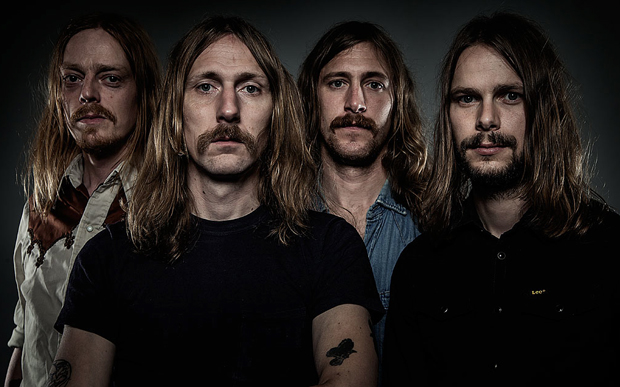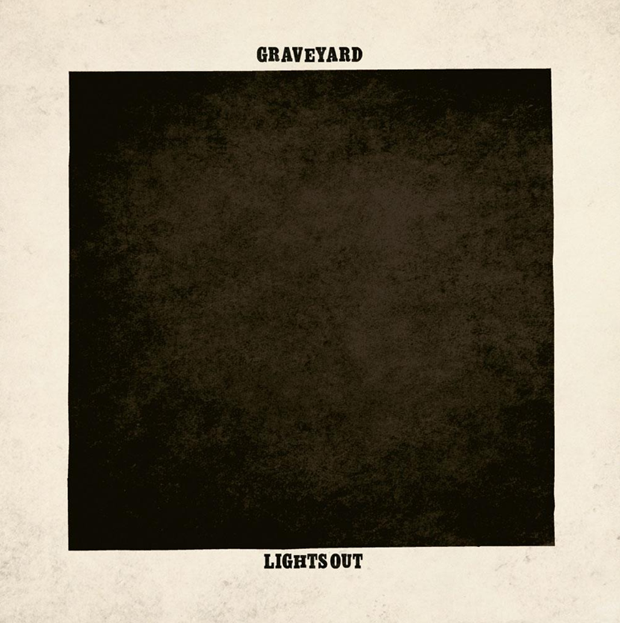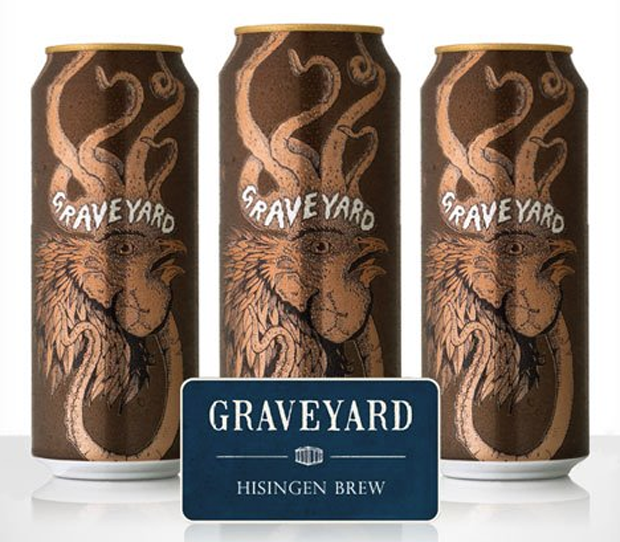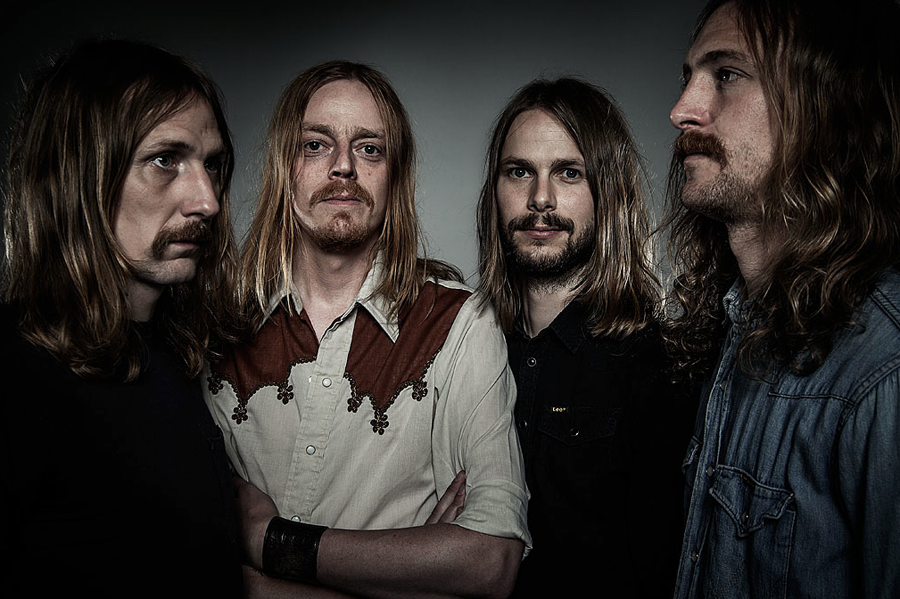Interview: Five Questions with Graveyard Guitarist Jonatan Ramm

We recently caught up with guitarist Jonatan Ramm of Swedish powerhouse Graveyard.
The band, which wears its vintage influences proudly on its sleeve, has cultivated a unique '70s metal feel that has caught of the ears of the metal community.
The band — singer Joakim Nilsson, guitarist Jonatan Ramm, bassist Rikard Edlund and drummer Axel Sjöberg — won a Swedish Grammy (rock/metal album of the year) for their 2011 album, Hisingin Blues. Their latest album, Lights Out, was released November 6 via Nuclear Blast.
Here are five questions with Ramm, who discussed the new album, gear, influences and more.
For more about Graveyard, check them out on Facebook and at their official website.
01. You’ve already won a Swedish Grammy, and now Lights Out is getting strong reviews. How did things come together so well for Lights Out? What was the plan when creating the album?
We didn’t really have a plan or anything when we wrote Lights Out. We kind of wanted to broaden the material to include harder and softer songs; our hardest song and our mellowest song ever are on Lights Out. Otherwise, we didn’t have a plan for which direction to go or anything like that.
Get The Pick Newsletter
All the latest guitar news, interviews, lessons, reviews, deals and more, direct to your inbox!
02. You have a pronounced '70s metal feel, which is unique in 2013. I’m assuming a lot of your influences are from that era?
Yes, we have all listened to a lot of music from the '60s and '70s, but we listen to a lot of music, like stuff made today also, so we try not to close doors on any kind of music at all. We just kind of try to listen to as much music as possible. But I think the '60s and '70s had a big impact on how we play and how we write the songs. I guess that’s the favorite era.
When I grew up, my dad played a lot of Chuck Berry music. And then when I got into the harder heavy metal, I was curious about where it all came from. And it lead back to the English and American bands that had a lot of those influences. So somewhere in the back of my head, that era has always kind of had a big impact.
03. You've also played with a lot of bands that came up during the '70s, including Iron Maiden and Motörhead. What was it like playing with acts like that?
It was a great feeling and a big honor to support bands we’ve been listening to since we were younger. It was a little scary, to be honest, to play with Iron Maiden because it was in a big arena, and it was the first time we'd ever played for that many people. But it was a lot of fun. I don’t think we’ll ever forget it. It was a nice experience.
04. Is there a particular guitar you're particularly fond of, or one that has helped form the sound of the band?
I got one guitar at the end of recording for Lights Out; it’s a Gibson SG made in 1968. I talked to the previous owner; he said it was put together by parts from 1968 and then they sold it to him a couple of years later in the early '70s. I like it a lot. It fits my hand. I hardly ever switch guitars now that I have that one.
I have a backup Gibson SG from 2010, so it’s a newer guitar. I think the older one sounds better because they made them with a little more feeling and better craftsmanship and maybe from better wood. So I think you can tell an old guitar that was made a while back. I think you can feel it in the craftsmanship.
05. You guys also have gotten into the beer industry recently with your Hisingen Brew. What led to that?
To be honest, I don’t know if it was the brewery’s idea or the label’s idea. It wasn’t very obvious to make a beer with our name on it or anything, but at the same time it’s something to do and it’s always hard to somehow set the limit for whatever the band name becomes. But we thought that beer is OK to make, but we were a little involved in the process. We didn’t brew it ourselves or anything, but we at least got to try the beer out and let them know what we thought was the better-tasting ones and so on.
Graveyard begins their North American tour in Boston on January 23. For more about the band, visit graveyardmusic.com.



“His songs are timeless, you can’t tell if they were written in the 1400s or now”: Michael Hurley, guitarist and singer/songwriter known as the ‘Godfather of freak folk,’ dies at 83
“The future is pretty bright”: Norman's Rare Guitars has unearthed another future blues great – and the 15-year-old guitar star has already jammed with Michael Lemmo









